How We Got Here
A "creative" "sociology" "timeline" of the last few hundred years [with illustrations!]
If I asked you to picture yourself sitting on your sofa scrolling your iPhone, this is what you might imagine.
Now, if you asked me to imagine the same thing, this is what I would see.
First things first: Yeah, I can admit that I have read too many books. (As my 12-year-old asked me a couple days ago, “Do you think you should maybe stop before you can’t be cool anymore?”)
And I can admit that the tech bros probably don’t surround themselves with actual gold coins.
And I can admit that this very much resembles something Carrie Mathison might have drawn on her bathroom wall in Homeland.
But, you guys, I think the books are right. I think the connections are real.
And I’m going to attempt to convince you that my little drawing is not the ravings of a madwoman.
I’m going to attempt to convince you not only that what you’re doing on your iPhone has implications for politics, relationships, our environment, and your soul—but that our dependence on those iPhones is the inevitable result of a pretty diabolical system. In other words: Way more is at play when you scroll for three hours than you, a bowl of ice cream, and a lack of will power.
I’m going to attempt to convince you that the way Silicon Valley pays their bills matters to people who just want to take their dog for a walk and get dinner on the table at night.
I’m going to attempt to convince you that your life would probably be better without most of what our phones offer us.
I’m going to do all this while online (irony!) and while maintaining that I am not a conspiracy theorist.
Or at least not the bad kind.
You in?
When people talk about reducing screentime, I get kind of annoyed. I don’t like when people tell me what to do. Who does?
And no amount of “you’re going to rot your brain” has ever made me care about spending fewer of my hours online.
I didn’t start caring about the effects of technology until I started understanding all those invisible forces at play every time I scrolled, clicked, liked, and tapped. There’s this giant web of people surveilling, recording, and profiting off of our every move, especially on social media like Instagram, Meta, and of course TikTok.
Not only are they “watching” us, they’re GETTING INSIDE OUR BRAINS. It’s not with a scalpel, which would send us running, but with tools both more stealthy and (as a result) more dangerous.
When I understood that, scrolling started feeling a lot creepier. I didn’t need a moral flogging to convince me to put my phone down. I just started feeling gross when I picked it up.
I’ve been asked for a reading list to explain how I got from Point A (Normal Person) to Point B (Reluctant Technophobe??).
Here is that reading list.
Also, I can’t find the Jaron Lanier book that started it all. The Max Fisher book was the second one I read and it REALLY messed me up.
Drawing on the research in these books (and others), I’m now going to do something a little silly. I’m going to try to explain in the simplest possible terms how I think our society got here, to a place of overwhelming public malcontent despite being the richest, most “comfortable” society (on average) to have ever existed.
I am going to do this not because you are dumb, but because I do not expect anyone to read all these books, and if I can “explain” them, it will make me feel like I read them for a reason. This is a rough attempt at connecting some dots without giving so much explanation that I lose you.
Let’s start.
It all begins with the Industrial Revolution.
Humans stop working as a way of “doing what needs doing” (growing food to eat, maintaining a shelter) and become wage laborers, turning their hours into dollars that they will then use to get the things they used to have access to on their own.
With industrialized capitalism comes a changed concept of TIME.
Instead of people just living inside time, they start to think of hours as discrete units, each worth money. This way of thinking logically prioritizes efficiency and speed over other values (most importantly, autonomy). After all, one human can only move so fast and do so much.
Businesses must grow or die.
Businesses are forced to scale up to keep pace with industrialization. Goods get cheaper, but the impact is felt on the environment and in communities, as resources are drained and workers begin feeling alienated from their support systems.
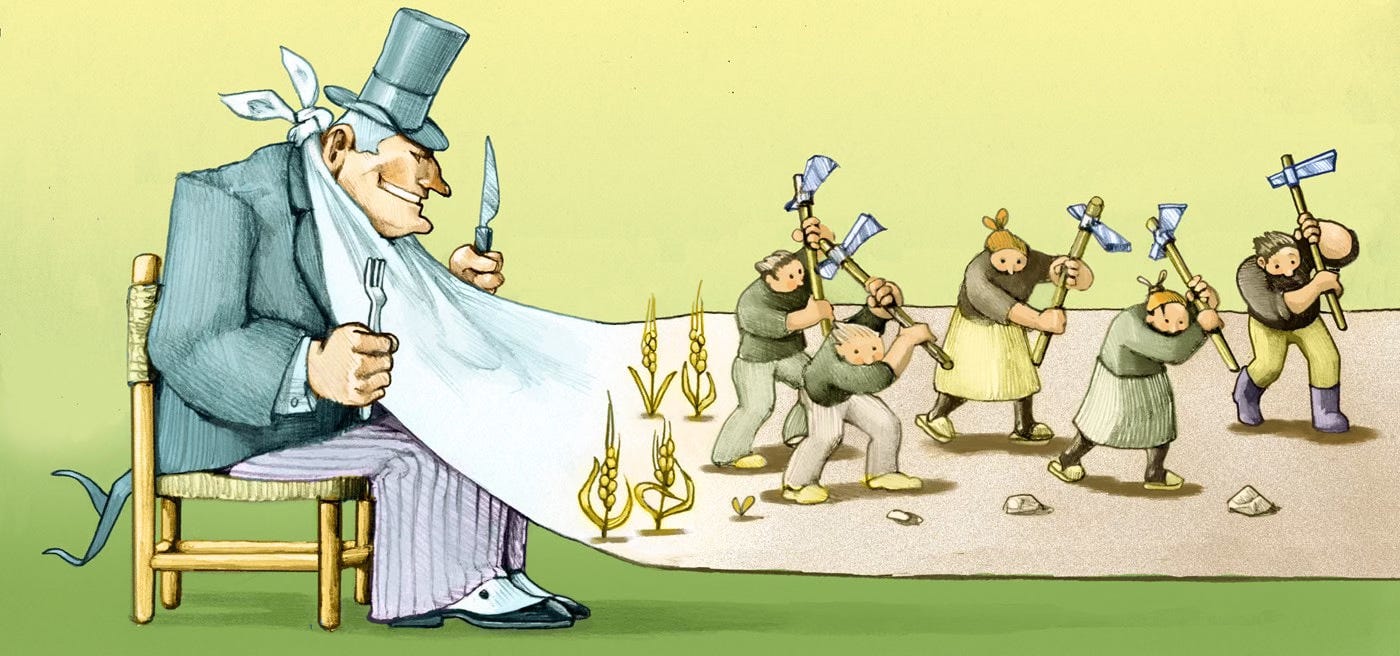
People get richer and lonelier.
Industrialized capitalism (and cheaper goods) lead to higher incomes and higher standards of living, so people stop living communally and (for example) build houses with separate bedrooms.
Advertising works on rich and lonely people.
Most people’s basic needs are met in an industrialized society, but giant businesses can’t survive without more money. To keep the money flowing, capitalism needs advertising. Advertising has the power to convince people they are lacking in status, fitness, home size, wardrobe, entertainment, and beauty. All so they will buy more stuff.
Life becomes disintegrated, divided into sections.
Wage laborers, isolated from communities and now spending most of their time away from their families, begin to view work as a thing outside themselves. They begin to think in two categories: work and life. They also begin to feel a sharp divide between work and leisure, two things that used to be intertwined throughout a normal day.
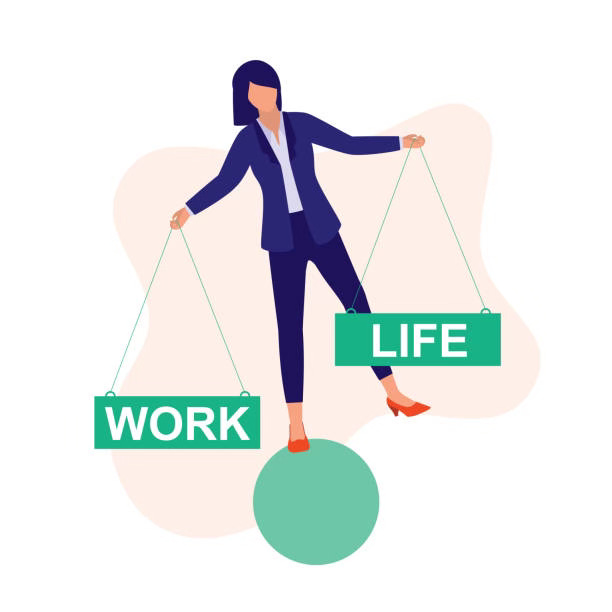
Entertainment fills in the hours between work.
Workers who now want to maximize their leisure hours turn to entertainment (which wasn’t really a thing in hunter-gather or agrarian societies). Television soothes the sad workers, advertising makes them sadder and takes their extra income, and people (who, remember, now view hours as commodities and have a new standard for busyness) start to feel bored when they are not entertained.
People grow accustomed to being efficient in work mode and entertained in off-work mode.
Smartphones enter the picture, and people are already primed for the three main things they offer: efficiency (wage laborers need dollars), connection (individualistic societies are lonely), and entertainment (distraction from felt purposelessness).
Media and politics blur with entertainment.
Thanks to the internet, rich and lonely people consume greater and greater amounts of information, but the “information-to-action ratio” has become hopelessly skewed. We are powerless to do much but increasingly feel the need to know, and our powerlessness sends us back into our entertainment caves.
Humans love dopamine.
As our access to consumer goods and online attention increases, we need more of it to maintain an always-rising threshold of satisfaction. In the same way that industry grows endlessly, gobbling up everything in its path, our need for social attention metastasizes.
PRESENT DAY: Everyone is spending money and consuming tons of information and “connecting” with other people and entertaining themselves...
and no is very happy.
To recap:
Silicon Valley depends on our discontent; advertising depends on Silicon Valley; Silicon Valley needs the government to decrease regulations; the government needs Silicon Valley for innovation; Silicon Valley depends on our data, which depends on our usage; our usage depends on advertising, which depends on influencers; influencers tell us how to live and what to buy; industry depends on Silicon Valley to keep us connected; our money depends on industry; industry depends on the government…
and on and on.
Things not accounted for: our environment, our souls.


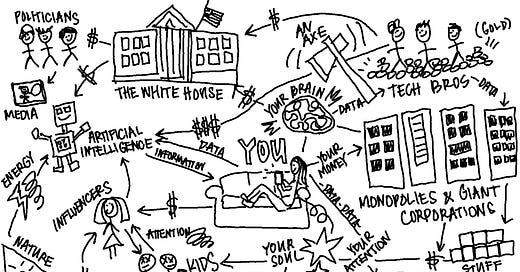


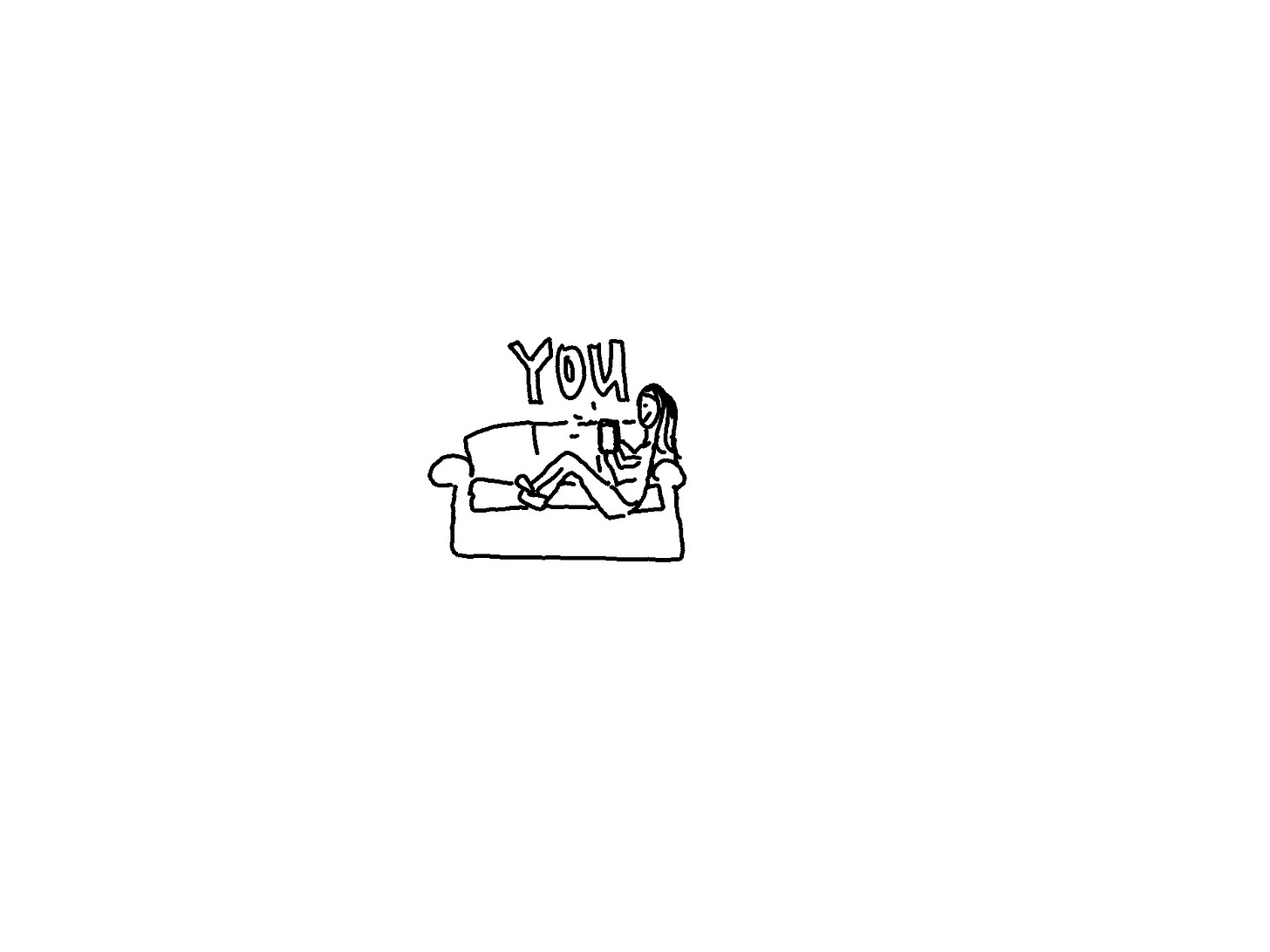


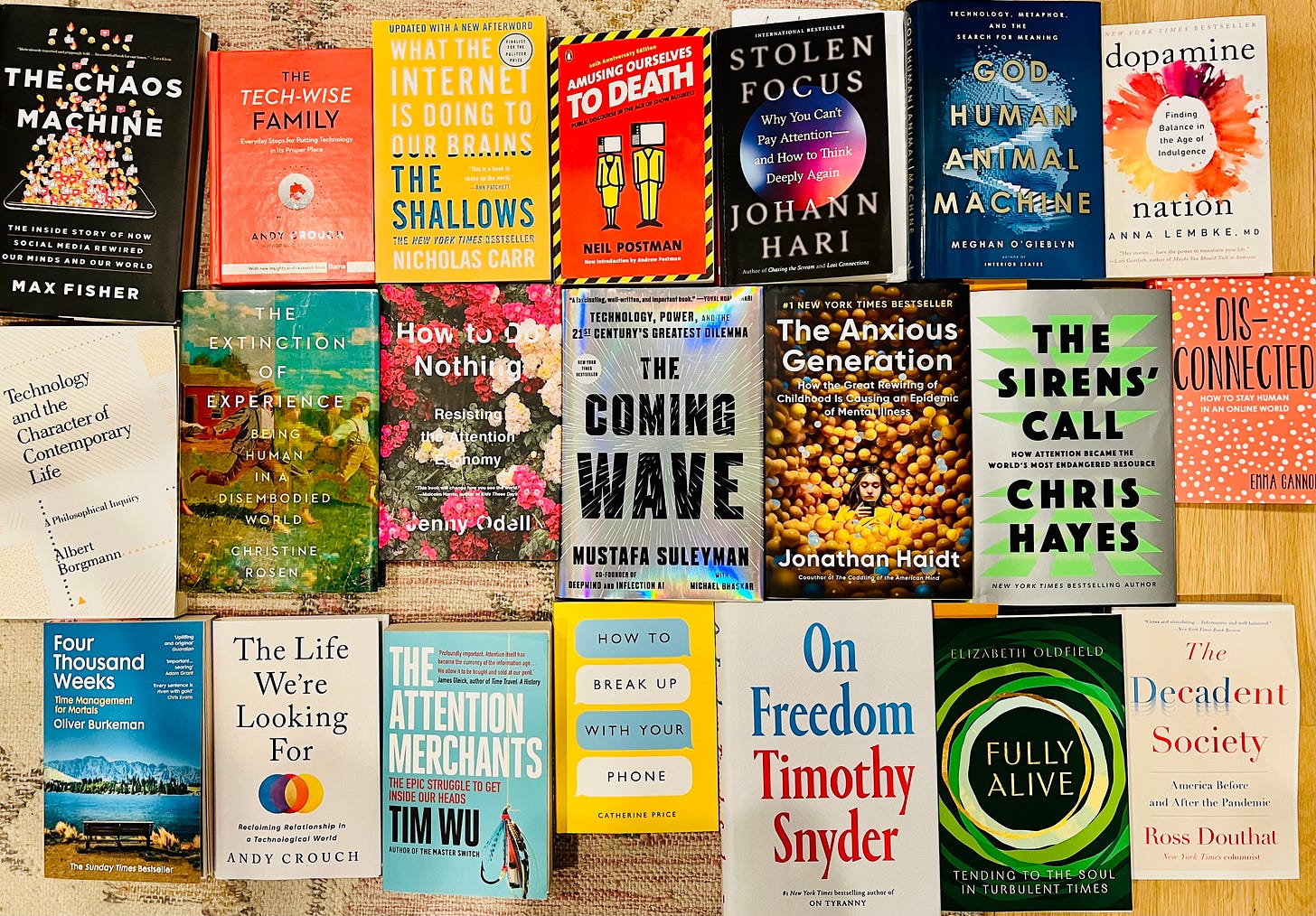
This is excellent, Lindsey!! I've been circling around this in my reading / thinking / learning for the last few years and in the last couple of months have started, without really meaning to, writing a collection of essays on this. Everyone I know is sick of me ranting about phones / human connection / capitalism and I often joke about how I sound like a conspiracy theorist but I simply cannot understand how the majority of people are SO CASUAL about their relationship to tech. Anyway, I've been loving your writing, thank you so much for sharing, please continue sharing your findings from your low-key descent into "conspiracy theories" 😆
“Not only are they ‘watching’ us, they’re GETTING INSIDE OUR BRAINS. It’s not with a scalpel, which would send us running, but with tools both more stealthy and (as a result) more dangerous.”
This is poignant passage, Lindsey. Yikes. Thank you for pointing this all out.